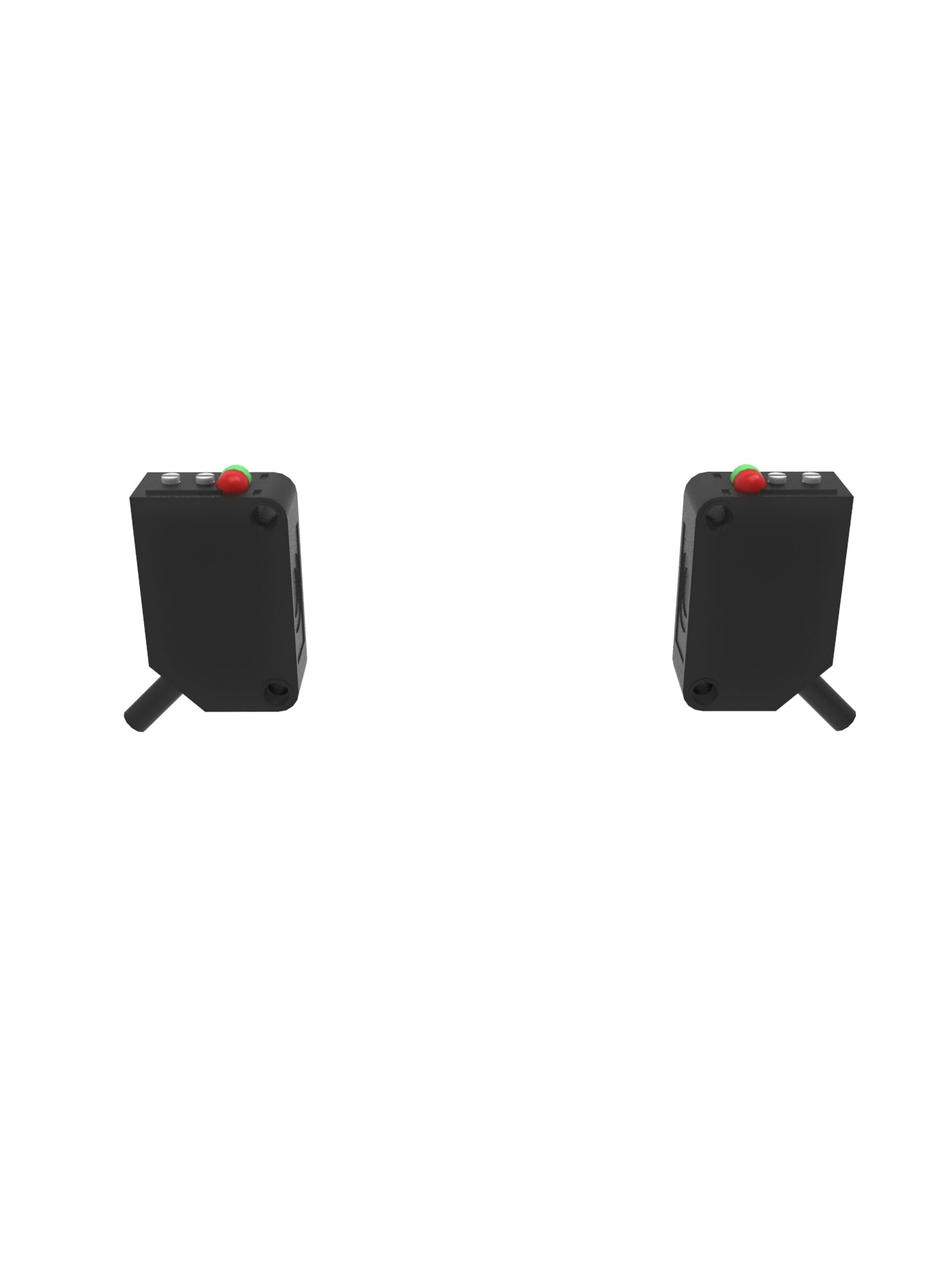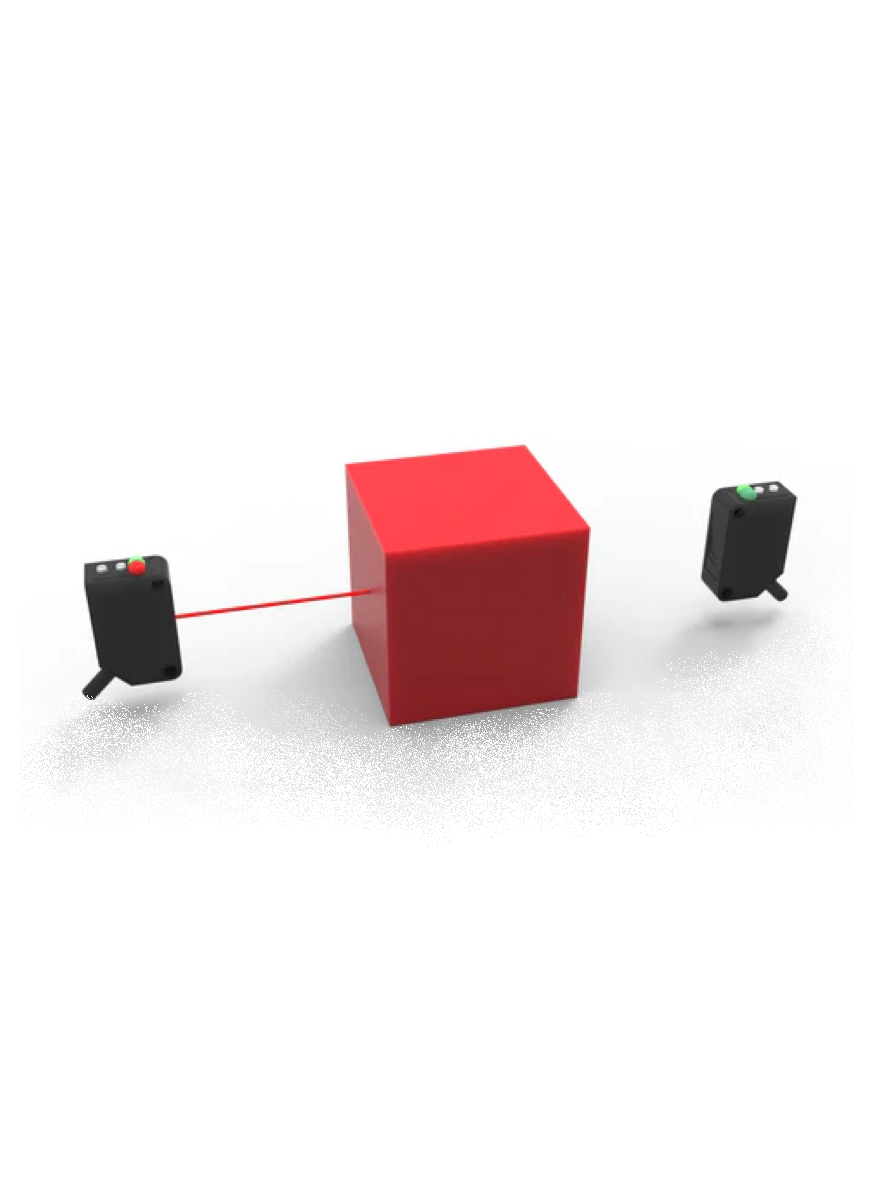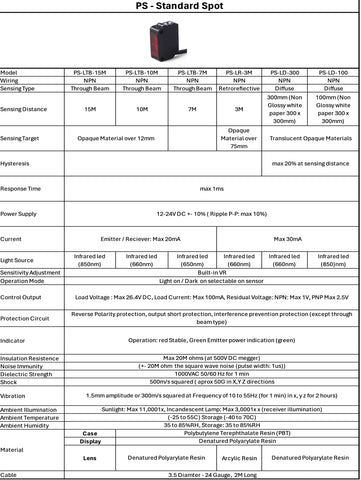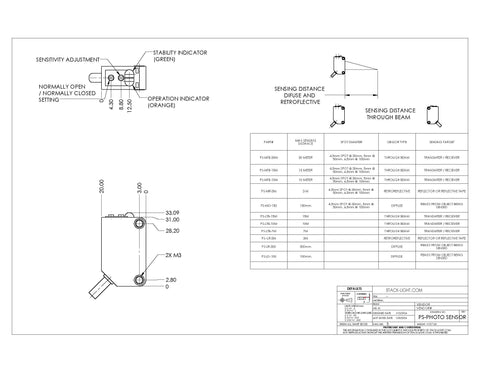Through Beam Photo Sensors
Through Beam Photo Sensors
SKU:PS-MTB-30M-P
Couldn't load pickup availability
Photo Sensor - Through Beam
The PS-LTB and MTB line of through-beam sensors can be ordered with a micro spot or a standard-size light beam. This makes it easy to select the best photo sensor for your application. Through Beam, sensors are very accurate, have a long sensing range, and are not affected by the object's color.
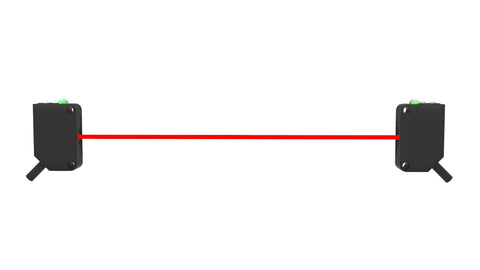
A beam of light is sent from the Transmitter to the Receiver. When the light is blocked by an object, the sensor switches states and opens or closes a switch.
The standard beam sensor is good for larger objects or porous objects. The large beam would not work as well for smaller objects, since the light could pass around the parts being detected and trigger the receiver.
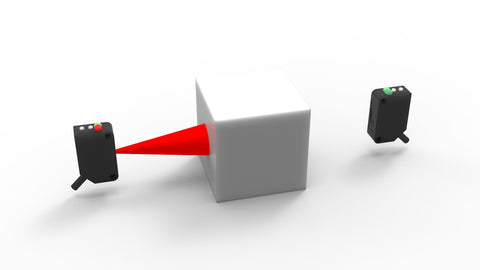
The Micro Beam Photo Sensors are perfect for detecting smaller parts The small light beam is also good for counting parts that are close together and for precise position sensing. They have a visible laser light that makes it easy to align the sensors and focus on the object being detected.
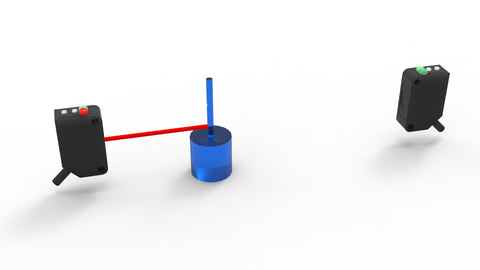
The sensor can be changed from light operate to dark operate with an adjustment screw on the top of the sensor. This lets the sensor operate as Normally open or Normally closed.
When using two sets of through-beam sensors, place a transmitter and receiver on one side and the other transmitter and receiver on the opposite side of the object to be sensed. Blinds can also be placed between the set of sensors to help with stray signals. This is especially helpful when sensing highly reflective objects.
Each Sensor comes with a Transmitter and Repeater and includes brackets and screws for mounting.
Choosing a PNP or NPN Sensor
The terms PNP and NPN refer to the type of transistor being used in the sensor. Fortunately, we only need to concern ourselves with how to select a sensor based on the way the sensor will be wired.
Sensors are basically switches that are open or closed based on some condition. This is true for prox switches, photo sensors or any other sensors. Simply put they are all switches that are opened or closed based on whether they detect something or not.
So why would we select a PNP or NPN?
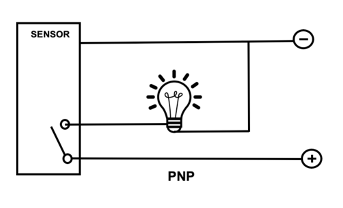
PNP (Sourcing)
If we want the switch to supply the + positive side of the power, we will select a PNP Switch. Remember PNP starts with P and it supplies the + Positive side of the circuit.
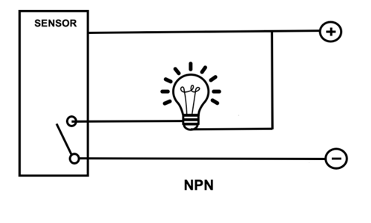
NPN (Sinking)
If we want to supply the -Negative side of the circuit, we will select a NPN switch. Remember NPN starts with N and it supplies the negative side of the circuit.
